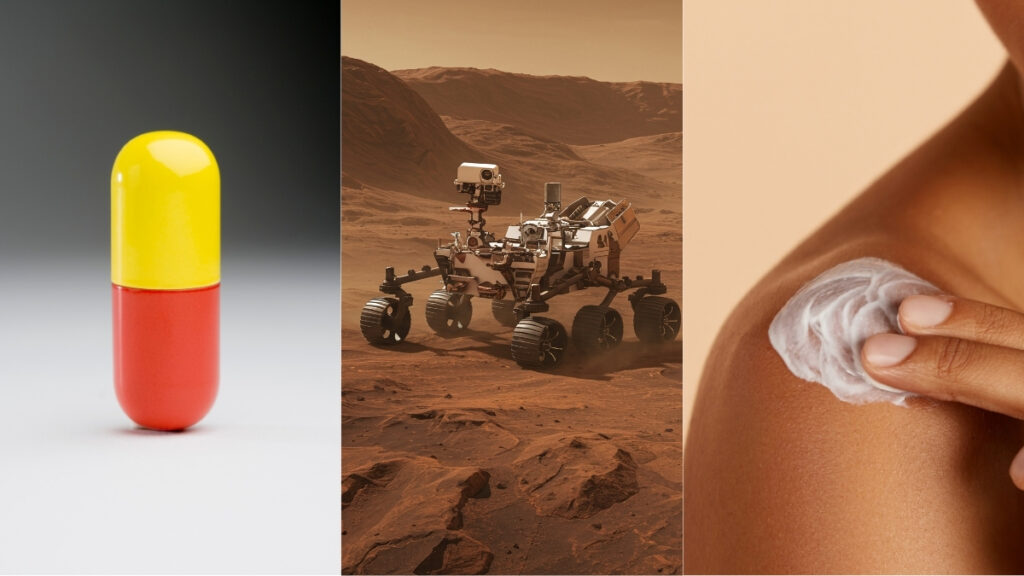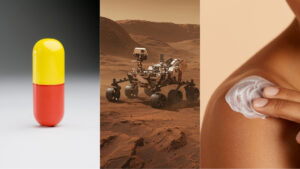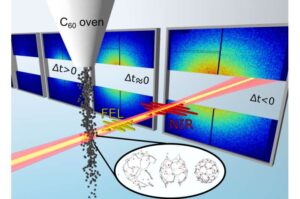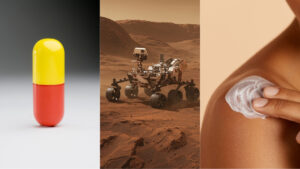
Recent advancements in science have introduced promising alternatives for diabetes treatment while revealing intriguing discoveries from space. This week, researchers reported on a new oral medication that may replace injections for diabetes management, a significant finding in autoimmune disease research, and a notable discovery on Mars.
New Oral Diabetes Treatment Shows Promise
A new drug, orforglipron, has demonstrated effectiveness comparable to Ozempic in a recent clinical trial. This medication, administered in pill form, resulted in substantial weight loss among participants. Those taking the highest dosage of 36 milligrams lost an average of 9.6 percent of their body weight, approximately 9.6 kilograms. Participants on the 12-milligram dose experienced a 7 percent reduction, while those on the 6-milligram dose lost 5.1 percent. In contrast, the placebo group saw an average loss of only 2.5 percent. These findings could herald a shift in diabetes management, moving away from regular injections towards more accessible oral treatments.
Link Between Epstein-Barr Virus and Lupus
A study has established a connection between the autoimmune disease lupus and the Epstein-Barr virus (EBV), one of the most common viruses globally. Researchers found that lupus patients exhibit a more severe infection from EBV, potentially due to exposure to a more virulent strain. The study revealed that approximately one in 400 B cells in lupus patients is infected with EBV, a rate 25 times higher than in healthy individuals. This discovery may pave the way for new therapeutic approaches to manage lupus.
Another notable development this week involves the exploration of Mars. NASA’s Perseverance rover has identified an unusual rock that appears to be a meteorite, named Phippsaksla. Measuring about 80 centimeters (31 inches) across, this rock is rich in iron and nickel, indicating it likely originated from outside the Martian environment. The geological implications of this discovery could enhance our understanding of Mars’ history and its interactions with extraterrestrial materials.
Innovative Insulin Delivery System
Researchers are also exploring an innovative insulin delivery system that could eliminate the need for injections in diabetics. Preliminary tests on mice show that a topical cream could effectively regulate blood glucose levels, achieving normal concentrations within one hour. This method maintained stable blood sugar levels for up to 12 hours, suggesting a potentially transformative approach to diabetes management.
In a different context, three Chinese astronauts are currently stationed on the Tiangong space station, facing an unexpected challenge. Their spacecraft was damaged by space debris in early November 2023, leading to a cracked viewing port. The China Manned Space Agency (CMSA) confirmed that a small piece of space junk caused the incident, prompting plans for a retrieval mission next week to ensure the astronauts’ safe return.
Finally, researchers have made strides in understanding how Alzheimer’s disease erodes memory. A study led by Lata Chaunsali found that the disease affects brain structures crucial for recognizing familiar faces. By protecting these structures early in life, the research suggests that individuals may retain better memory of social interactions, offering hope for future therapeutic strategies.
These developments illustrate the dynamic nature of scientific research, as new treatments and discoveries continue to shape our understanding of health and our universe.







